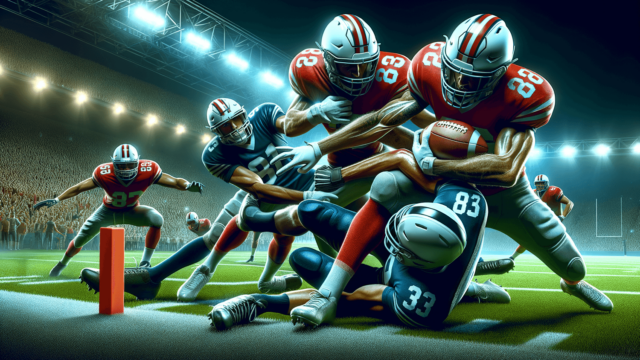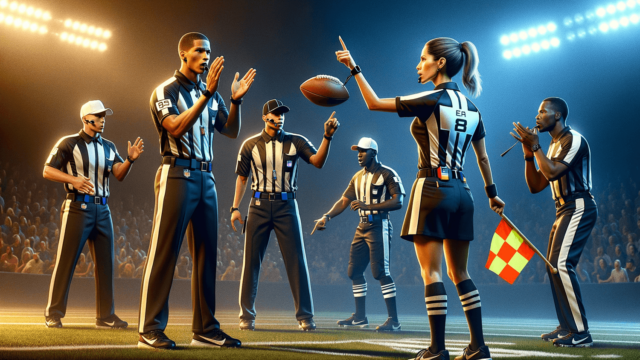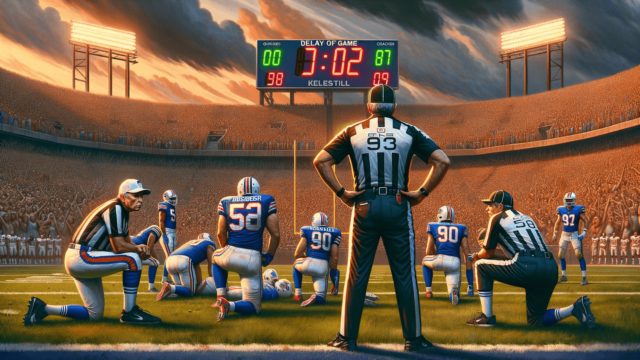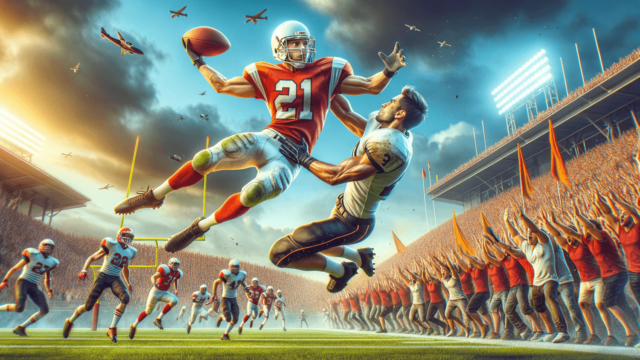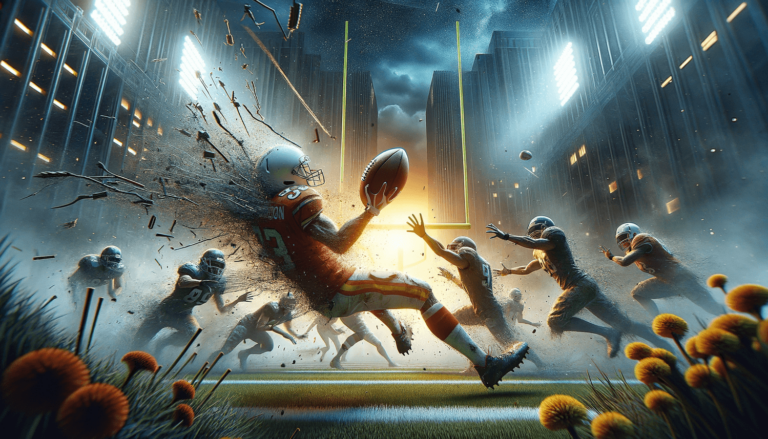
A dead ball in football occurs when the play is considered over, due to a rule infraction, an incomplete pass, a player being tackled to the ground, or the ball going out of bounds. The game then resumes with the appropriate restart method, such as a free kick, corner kick, or throw-in.
Defining a Dead Ball in Football
A dead ball in football occurs when the play is considered over due to a specific event that has taken place during the game. These events may include a rule infraction, an incomplete pass, a player being tackled to the ground, or the ball going out of bounds.
Common Dead Ball Scenarios
Fouls and Misconduct
When a foul is committed, the referee will stop the game and award a free kick or penalty kick to the team that was fouled. Until the free kick or penalty kick is taken, the ball is considered dead.
Offside Rule
If a player is judged to be in an offside position when the ball is played to him, the referee will whistle to indicate an offside offense, causing a dead ball situation. The game will then resume with an indirect free kick awarded to the opposing team.
Ball Out of Play
If the ball completely crosses the touchline or the goal line, the game is halted, and the ball becomes dead. The game then resumes with either a throw-in, goal kick, or corner kick, depending on the situation.
Incomplete Pass
When a forward pass in a football match fails to reach its intended target and falls to the ground, the ball is considered dead. This commonly happens when a pass is intercepted, or when a pass is not caught by an eligible receiver and falls to the ground.
Restarting Play after a Dead Ball
Depending on the reason for a dead ball, the game can restart in several ways:
Free Kicks
After a foul or misconduct, the game resumes with a free kick (direct or indirect) given to the team that was fouled.
Penalty Kicks
If a foul is committed inside the penalty area, a penalty kick is awarded to the attacking team.
Throw-Ins
When the ball goes out of play over the touchline, the game resumes with a throw-in by the team who did not touch the ball last.
Corner Kicks & Goal Kicks
If the ball goes out of play over the goal line, a corner kick is awarded to the attacking team if the defending team touched the ball last. A goal kick is awarded to the defending team if the attacking team touched the ball last.
Deadline Set Play
In some situations, a dead ball creates an opportunity for tactically planned set plays. Teams design and practice these set plays to outsmart and exploit their opponents’ weaknesses. For instance, free kicks, corner kicks, and penalty kicks provide the attacking team with a chance to capitalize on dead ball situations and create goal-scoring opportunities.
Handling a Dead Ball as a Player
Players must know how to respond to dead ball situations effectively and efficiently. Defenders should be ready to form a wall during free kicks, while attackers should position themselves strategically to maximize scoring chances. During throw-ins, players must communicate and move to be available for the person taking the throw-in, providing passing options to help retake possession and continue the attack.
Dead Ball Responsibilities of Referees
Referees play an essential role in identifying, signaling, and controlling dead ball situations. They must use their whistle and hand signals to communicate decisions to the players, ensuring that the game restarts correctly and in a timely manner. The referee also has the authority to take disciplinary actions, such as showing yellow and red cards when necessary, to maintain fair play and order during the match.
Dead Ball Specialist
Some footballers are known for their exceptional abilities to take advantage of dead ball situations, earning the title of dead ball specialist. These players have accurate, powerful, and technically proficient shooting or crossing skills, making them dangerous in free kick, corner kick, and penalty kick scenarios. Dead ball specialists are often sought-after assets for their teams, as they can significantly boost the scoring potential.
FAQ: Dead Ball Situations in Football
After understanding the concept of dead ball situations in football, you may have some questions or seek further clarification. Here’s a compilation of frequently asked questions and their answers to help you gain a deeper understanding of dead ball scenarios.
What makes a player a dead ball specialist?
A dead ball specialist is a player who excels at taking advantage of dead ball situations, possessing accurate, powerful, and technically proficient shooting or crossing skills. Typically, these players are reliable in taking free kicks, corner kicks, and penalty kicks, and their ability to score or create scoring chances substantially contributes to their team’s success.
How can a team prepare for dead ball situations?
Teams can prepare for dead ball situations by practicing set plays during training sessions, which involve rehearsing free kick and corner kick routines, tackling techniques, and positioning strategies. Coaches often analyze opponents’ tactics and weaknesses to design the most effective set plays, ensuring their team can effectively react to and exploit dead ball scenarios in games.
What happens when a goalkeeper catches a ball in a dead ball situation?
If a goalkeeper catches the ball in a dead ball situation, the game resumes with the keeper releasing the ball back into play. They can do this by throwing, rolling, or kicking the ball within their area. Once the goalkeeper releases the ball, the game continues, and the ball is considered “live” again.
Are there any differences in handling dead ball situations in different leagues or competitions?
Generally, the rules for dead ball situations remain the same across different leagues and competitions. The Laws of the Game, as established by FIFA and conducted by the International Football Association Board (IFAB), govern all official football matches. Some leagues or tournaments may have minor variations in how specific rules are implemented or enforced, but these changes do not significantly impact how players handle dead ball situations.
Can a dead ball situation lead to an own goal?
An own goal can occur in a dead ball situation, such as a free kick, corner kick, or an indirect free kick. However, an own goal cannot be scored from a goal kick, throw-in, or a direct free kick awarded for an offside offense. In these cases, if the ball enters the goal directly, without touching any other player, the referee will restart the game with a corner kick or a goal kick, as appropriate.
Featured Posts
- No pillar pages found.

